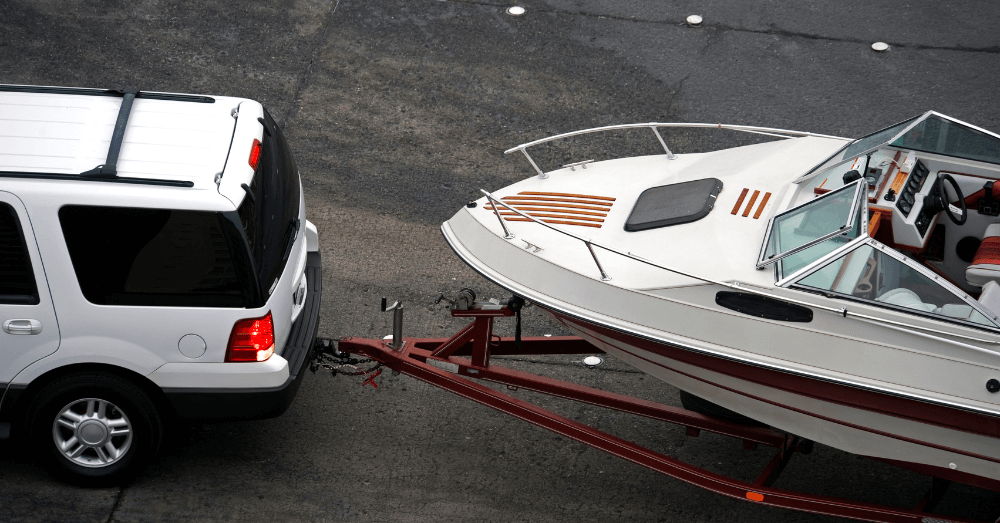You’re standing at the dealership staring at two trucks with nearly identical price tags. One burns gasoline, the other diesel. Both promise to haul your boat without breaking a sweat. The sales guy keeps throwing around horsepower numbers, but you’re thinking about that steep boat ramp back home and whether you’ll look like a fool trying to back your trailer down on a busy Saturday morning.
- Diesel engines deliver their pulling power at much lower RPMs, giving you better control at boat ramps and when towing heavy loads uphill.
- Gas engines cost thousands less upfront and require simpler, cheaper maintenance throughout their lifetime.
- Your actual towing frequency and distance traveled matter more than any spec sheet when deciding which engine makes sense financially.
Torque Tells the Real Story at the Ramp
Here’s where diesel trucks shine brightest. Diesel engines make their pulling power way down low, usually between 1,600 and 2,000 RPM. Gas engines need to spin much faster to hit their peak torque, typically around 3,500 to 4,500 RPM.
What does this mean when you’re backing a pontoon boat down a slippery concrete ramp on a busy weekend? With diesel, you can creep backward with steady, controlled power while barely touching the throttle. Gas engines require more pedal work and higher revs to maintain that same smooth, controlled descent. The difference becomes obvious when you’re maneuvering in tight spots or dealing with steep grades.
The Fuel Economy Math Everyone Gets Wrong
Diesel marketing loves to talk about fuel savings, but the real numbers tell a more modest story. Towing a 7,000-pound boat and trailer, a modern gas V8 might return 10 to 12 mpg on the highway. A comparable diesel gets 13 to 15 mpg doing the same work.
You save about 3 mpg. Over 10,000 miles of towing per year, that’s roughly $500 in fuel savings at current prices. Sounds good until you remember the diesel costs $8,000 to $11,000 more upfront. The math only works if you tow frequently and plan to keep the truck for many years.
Maintenance Costs Add Up Fast
Diesel exhaust fluid adds a task that gas owners never think about. DEF tanks need refilling every 5,000 to 10,000 miles depending on how hard you work the engine. The fluid runs about $12 for a 2.5-gallon jug. Running out means the truck limits power or won’t restart until you refill it.
Service costs swing heavily toward gas engines. A diesel oil change runs $100 to $150 at most shops because these engines hold more oil and need special formulations. Gas V8 oil changes cost $50 to $80. Diesel fuel filters need replacement every 15,000 to 20,000 miles at $50 to $100 per service. Diesel particulate filters eventually need cleaning or replacement at costs reaching $1,000 or more.
Weight and Traction Matter Too
Diesel engines add 400 to 700 pounds over the front axle compared to gas engines. This extra weight helps plant the drive wheels when you’re pulling a boat up a steep, wet ramp. But here’s the thing: aggressive all-terrain tires make a bigger difference than engine choice for most situations. Four-wheel drive matters more than anything else when conditions get really slick.
Noise Has Gotten Much Better
Modern diesel trucks run quieter than the old farm equipment diesels from 20 years ago. You still feel more shake at idle with a diesel, and the exhaust has that distinctive chatter. Gas V8s remain smoother and quieter overall, especially at highway speeds. This matters during those six-hour drives to the lake with your family.
Cold Weather Performance
Diesel fuel can gel in extreme cold if you’re not using winter blends. Diesels take longer to warm up on freezing mornings too. Gas engines fire right up and make heat faster, which your passengers appreciate on early fishing trips.
Resale Value Sweetens the Deal
Diesel trucks hold their value better in markets where towing is common. Buyers looking for serious towing capability will pay extra for a well-maintained diesel. This higher resale helps offset the increased purchase price and maintenance costs. Gas trucks sell faster to more buyers but command lower prices.
Making Your Decision
Choose diesel if you tow heavy loads regularly, cover long distances, and plan to keep the truck for many years. The low-end torque and better fuel economy when towing make up for the higher costs over time.
Pick gas if you tow occasionally, want lower maintenance expenses, and value simplicity. Modern gas engines in 3/4-ton trucks handle most boat towing tasks without complaint. A gas-powered F-250 or Ram 2500 will pull a 27-foot center console or pontoon boat to the ramp and back without drama.
Both will get your boat in and out of the water. They just get there in different ways, with different costs along the route.
